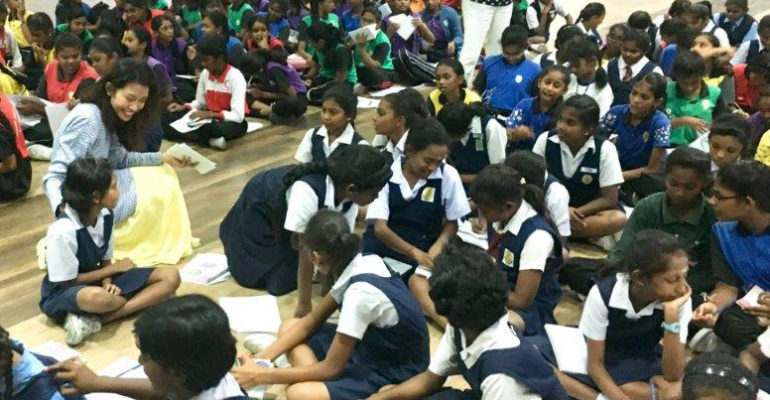Special Advisor to SI Advocacy, Linda Witong, blogs about the content of the Human Rights Council’s latest resolution on Education.
“On July 11, 2019, the UN Human Rights Council adopted a Resolution which again addressed the human right to education. It acknowledged that, although the human right of everyone to education was enshrined in numerous Treaties, Declarations and Resolutions, there were still 750 million adults who were not literate, two thirds of whom were women, and 262 million children and youth who did not attend school. In addition, according to the United Nations Children’s Fund, 50 per cent of pre-primary-age children around the world – at least 175 million – were not enrolled in pre-primary education.[2]
This Resolution also dealt with several important themes. To begin with, it was recognised that girls were “disproportionately represented among out-of-school children and that women are disproportionately represented among illiterate adults, owing to, inter alia, discrimination based on race, colour, age, language, religion, political or other opinion, national or social origin, property, birth or other status, early marriage or pregnancy, the lack of appropriate sanitary facilities, gender stereotypes, patriarchal social norms, and on economic grounds when education is not free.”[3] As such, it urged all States to expand educational opportunities for all without discrimination, including by implementing special programmes to address inequalities, including barriers to accessibility and discrimination against women and girls in education”.[4] This included taking “all necessary measures, including sufficient budgetary allocations, to ensure accessible, inclusive, equitable and non-discriminatory quality education, and to promote learning opportunities for all, paying particular attention to girls, marginalised children, older persons, persons with disabilities and all vulnerable and marginalised groups, including those affected by humanitarian emergencies and conflict situations.”[5] They also called upon States to “accelerate efforts to eliminate gender-based discrimination and all forms of violence, including sexual harassment, school-related sexual and gender- based violence, and bullying of children, in schools and other educational settings, and to realise gender equality and the right to education for all.”[6]
Another focus of this Resolution’s attention was that of “the negative impact of climate change, natural disasters, conflict and crisis on the full realisation of the right to education.” It observed that it was a fact, as noted in the Incheon Declaration, that “a large proportion of the world’s out-of-school population lives in conflict-affected areas, and that crises, violence and attacks on and the military use of educational institutions, natural disasters and pandemics continue to disrupt education and development globally.”[7] It addressed these issues by calling upon States to take all necessary measures, including sufficient budgetary allocations, to ensure accessible, inclusive, equitable and non-discriminatory quality education, and to promote learning opportunities for all… including those affected by humanitarian emergencies and conflict situations.”[8]
This Resolution also condemned “the recurring attacks on students, teachers, schools and universities, which impair the realization of the right to education and cause severe and long- lasting harm to individuals and societies.[9]” In an effort to address these threats, it also called upon States to “continue to make efforts to strengthen the protection of preschools, schools and universities against attacks, including by taking measures to deter the military use of schools, and encourages efforts to provide safe, inclusive and enabling learning environments and quality education for all within an appropriate time frame, including all levels of education in the context of humanitarian emergencies and conflict situations.”[10]
This Resolution also specifically commended “the contribution of national human rights institutions, civil society, including non-governmental organisations, and parliamentarians to the realisation of the right to education, including through cooperation with the Special Rapporteur”[11]“.
Click here to read Linda’s summary of the summary of the Human Rights Council’s Special Rappoteur’s report ‘Right to education: the implementation of the right to education and Sustainable Development Goal 4 in the context of the growth of private actors in education’.
[1]Human Right to education: Follow-Up to Human Rights Council Resolution 8/4Draft Resolution – adopted July 11,2019 without a vote
[2] Ibid Preamble
[3] Ibid Preamble
[4] Ibid Paragraph 3
[5] Ibid Paragraph 10
[6] Ibid Paragraph 14
[7] Ibid Preamble : Incheon Declaration: Education_2030_Incheon_Declaration_and_Framework_For_Action_2015_En.pdf
[8] Ibid Paragraph 10
[9] Ibid Preamble
[10] Ibid Paragraph 11
[11] Ibid Paragraph 18

